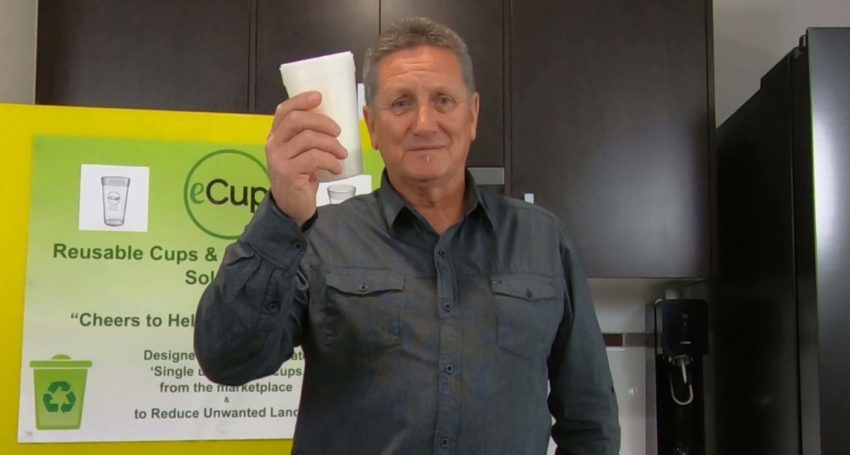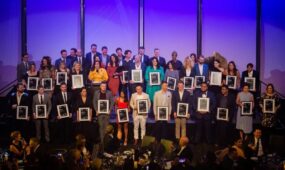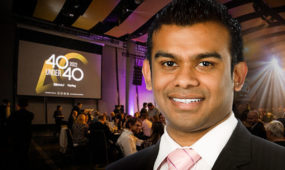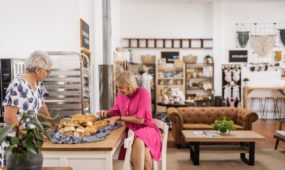Keep cups aim to keep local manufacturing going
Business
The Adelaide company behind a reusable cup designed to reduce waste and costs for event organisers is bringing the manufacture of the products back to Australia amid a nationwide push to create local jobs in the face of the economic downturn.

Sign up to receive notifications about new stories in this category.
Thank you for subscribing to story notifications.

eCup founder and creative director John Maule was set to begin manufacturing the reusable cups in China late last year. But the economic impact of the bushfires and the coronavirus-induced lockdown brought his plans to a halt.
Some eight months on, Maule has launched a Kickstarter campaign to raise funds to have the interactive cups produced in Adelaide, South Australia and help drive a circular economy in the process.
Made from polypropylene, the eCup was designed as a replacement for single-use plastic cups at events, in a bid to reduce the waste and costs associated with their collection.
Maule said the cost of producing the mould needed to manufacture the cups in Australia was about $160,000 prior to the pandemic compared with $15,000 in China.
However, he said a weaker Australian dollar and desire to stimulate the local economy following the biggest national unemployment crises this century had driven the price for a locally made mould down to about a third of its previous estimate.
“The figures were nowhere near what they are now … and people wanted to work, wanted to help and I was actually astounded and very relieved,” Maule said.
“So now we have a system whereby we can produce our moulds in Adelaide, our products in Adelaide and it’s all localised.”
The decision to produce locally comes as the Australian government’s National COVID-19 Commission Advisory Board examines a national strategy to drive different manufacturing sectors in each state.
Australian Industrial Transformation Institute director John Spoehr said that eCup was among a wave of businesses looking to revive manufacturing in the state.
“I certainly am more aware now – more than in my 30 years of following the manufacturing debate – that rather than the attention being on outsourcing and manufacture through global supply chains, the focus is very squarely on whether or not it’s possible to manufacture locally,” Spoehr said.
“I can’t remember having such a robust debate around the importance of sovereign manufacturing as we’re having at the moment.
“COVID-19 has exposed lots of vulnerabilities in our supply chains, particularly our dependence on imports and a whole range of goods … as we have become dependant on China and other nations.
“We’re asking the question: what should we be producing in Australia as a matter of course to de-risk the Australian environment against the sorts of shortages that we’ve experienced in recent times?”
Spoehr said South Australia’s manufacturing leaders were considering ways to drive more local manufacturing business off the back of defence and space projects.
“Our big defence manufacturing projects have been identified as a major driver of building more robust manufacturing supply chains in Australia, by getting a wide range of small to medium enterprises in the future frigate and submarine projects,” Spoehr said.
“It’s easy to forget South Australia is still a strong manufacturing state. With the close of the automotive industry, there are still 60,000 to 70,000 manufacturing jobs in South Australia – and there will be substantial shipbuilding over the next few years, which is going to create 5000 plus jobs.
“So the challenge for us is leveraging that investment in shipbuilding for the growth of manufacturing in other sectors.”
Maule said, as part of the circular economy, the eCup would help create jobs beyond the manufacturing industry, with the company looking to employ about 15 people in the first year including in marketing and events positions.
“There’s two means to eCup: One is to buy and one is to hire. So you can buy a cup at the venue or you can hire it for an event – if you hire it for an event you create a circular economy,” Maule said.
“Once we pick it up from you we take it back to the warehouse, we put it back in the washer, it’s sanitised and untouched by hand and it goes back into a plastic sleeve into the box. So it’s stored and never reaches landfill.
“If you buy it, people will pay a deposit at the bar when they get their cup – very similar to what you do with the wine shows. You buy your glass and you keep it and take it up to the bar when they get a fresh drink.
“If it’s taken home … people can keep on using it, take it camping and do whatever you like with it.”
Maule said there would be two styles of cup available – the Freddie and the Mary-Lou – with individual in-mould labelling.
He said the eCup took its name from its ability to link with digital platforms.
“We’ve created and developed a cross-media platform which … you can actually print or scan any photo on that in-mould labelling and that will direct it to a website,” Maule said.
“For example, if you have your favourite sports player, say for the Crows or Port Adelaide and his face is on there it’ll give you all his stats on your screen.
“We’ve put technology into the cup.”
He said he hoped to raise $122,000 through the Kickstarter, which would be used to pay for the moulds, with an aim to release eCup in time for summer.
Jump to next article



